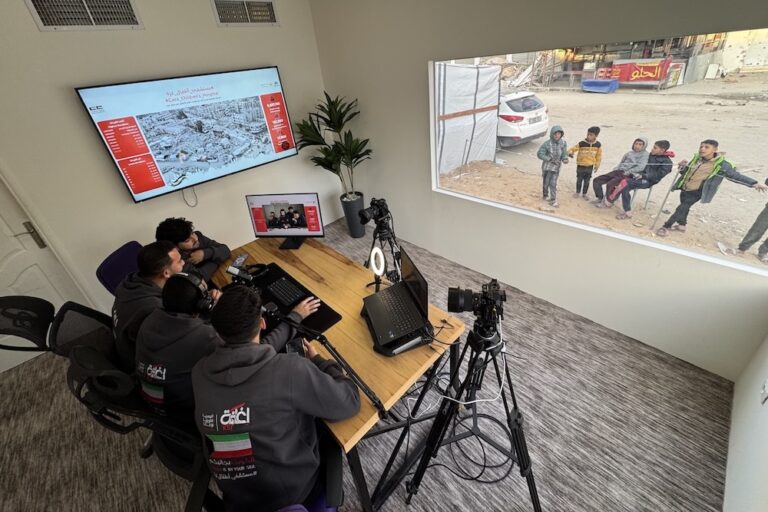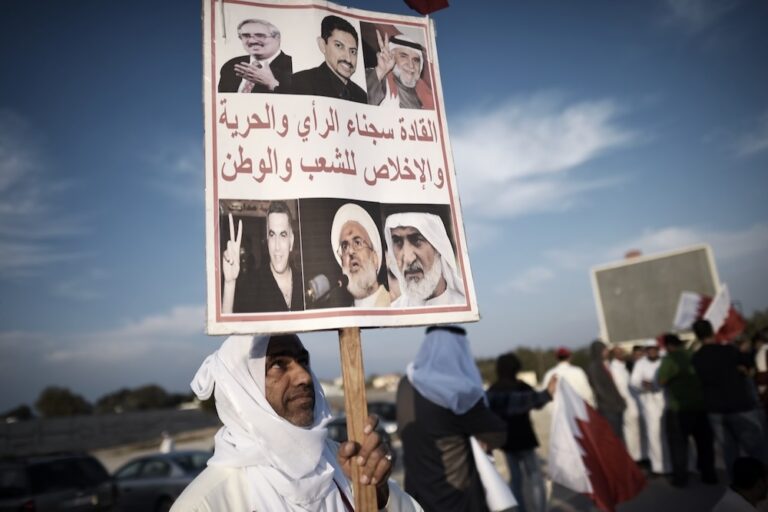IFJ blames governments' failure to uphold their international obligations for the ongoing violence targeting media.
(IFJ/IFEX) – 31 December 2011 – The International Federation of Journalists (IFJ) today urged the United Nations Secretary General Ban Ki-moon to take drastic action against governments of the most dangerous countries for media after it published its annual list of 106 journalists and media personnel killed in 2011.
The Federation says 2011 has been another bloody year for media and blames governments’ failure to uphold their international obligations for the ongoing violence targeting media. In a letter to the UN Secretary General, the IFJ calls for effective implementation of international legal instruments to combat the prevailing culture of impunity for crimes against journalists. “It is abundantly clear that deadly violence against journalists is not just a blip due to conflicts around the world but has become a regular cycle in many countries where journalists are hunted down, targeted and murdered by the enemies of press freedom,” said the letter signed by IFJ President, Jim Boumelha. “In a situation where governments are in denial or indifferent to what has become a regular pattern of targeted killings of journalists, it is incumbent upon yourself and the United Nations to remind them of their responsibility to protect journalists.”
This year’s list confirms that journalists are among the primary victims of violence in armed conflict, ethnic and religious tensions, as well as political upheavals which erupted in many countries during the past twelve months. Media professionals are exposed to serious risks, often with tragic consequences, as they report from the frontline of conflicts such as in Pakistan and the Arab world or crime prevention in the lawless parts of Mexico where they are considered unwelcome witnesses.
The IFJ list of work related media killings is coordinated with the International News Safety Institute (INSI) and contains 106 journalists and media personnel who died during 2011, up from 94 killings recorded in 2010. An additional 20 journalists and collaborators also died in accidents and incidents resulting from natural disasters.
The IFJ says that violence targets not just journalists but also colleagues from all sectors of the industry, including cameramen, drivers and fixers and other support staff which are all recorded to underscore their crucial role in news gathering and reporting.
The systematic failure of governments to protect journalists and punish those who are responsible for violence against them has entrenched the culture of impunity in most parts of the world and contributed to ever rising numbers of journalists’ killings. This prompted the IFJ and the press freedom community to hold for the first time the International Day to End Impunity for Crimes against journalists on 23 November 2011.
“This year’s numbers just prove that violence targeting media workers continues unabated,” added Stephen Pearse, IFJ Deputy General Secretary. “We need to send out a strong message that action is needed to stop the violence and the bloodshed.”
As of 31 December, the IFJ recorded the following information on killings of journalists and media staff in 2011:
Targeted killings and homicide incidents: 106
Accidental deaths: 20
Total Deaths: 126
The deadliest region in 2011 was the Middle East and Arab World with 32 journalists and media personnel killed. Iraq had the region’s highest death toll with 11 dead.
Among countries with high numbers of media fatalities are:
Iraq: 11
Pakistan: 11
Mexico: 11
The Philippines: 6
Libya: 6
Yemen: 6
Honduras: 5
India: 5
Click here for the list of journalists and media personnel killed in 2011


